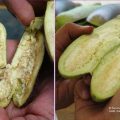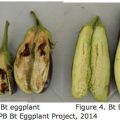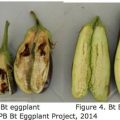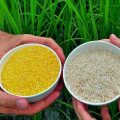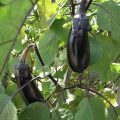The World Health Organization (WHO) has affirmed that genetically modified (GM) foods in the market have passed Codex food safety assessments and have not had records of adverse effect on human health.
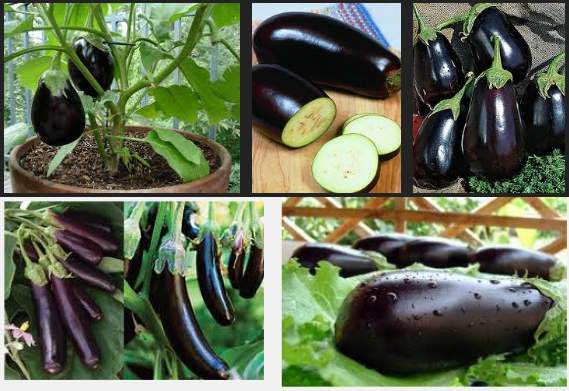
Plant breeding experts at the Philippines’ premiere plant breeding agency, Institute of Plant Breeding (IPB), have asserted the global position of highly-respected institutions like WHO on the safety of GM foods.
“Several esteemed international organizations such as WHO concluded that consuming foods with ingredients derived from GM crops is ‘no riskier’ than consuming the same foods with ingredients from crops modified conventionally,” according to Dr. Ruben L. Villareal, National Academy of Science and Technology (NAST) agricultural sciences chairman.
The GM technology, considered to be under biotechnology, is in fact a major tool that can make Philippine agriculture competitive, he said. Villareal was one of the founders of IPB, University of the Philippines-Los Banos’s (UPLB) plant breeding arm.
“Through biotechnology, new varieties that would be advantageous to farmers, consumers, and the environment could be developed,” said Villareal.
Review of CA decision urged
The Court of Appeals (CA) just issued a decision last month stopping field trials of the GM Bacillus thuringiensis (Bt) eggplant.
But Villareal urged the CA to review its decision stopping the Bt eggplant trial.
“With the numerous global evidences already known, I cannot understand the basis of the decision. I hope that our legal experts and the court could revisit and look deeply at the scientific evidences and the long experience of around 30 countries planting 170.3 million hectares of biotech crops including the Philippines,” he said.
Bt eggplant benefits
Bt eggplant (talong in Filipino) will significantly benefit farmers through less exposure to chemical pesticides. That has been proven scientifically contrary to accusations raised by anti-GM advocates.
Studies have shown numerous potential benefits of Bt talong to Filipino farmers and consumers. This includes reduction in farm labor costs by 10 to 25 percent and reducing pesticide applications by 60 percent, according to IPB. With less pesticide spray, consumers will also benefit from eggplant that has not been excessively sprayed with pesticide.
Bt eggplant enables up to 64 percent increase in yield and income for farmers.
Compared to conventional varieties, they can enjoy up to an additional income of P50,000 per hectare.
Bt eggplant will alter the practice, and its harmful health effects, of farmers in Pangasinan who extensively use insecticide on their eggplant. Some farmers are found to even dip eggplants on a bucketful of insecticide just to ensure the eggplants are not destroyed by the pest fruit and shoot borer.
“Bt eggplant aims to provide an effective alternative to eggplant farmers who are plagued by needing incessant pesticide spraying that directly cause environmental and health hazards,” said Villareal.
WHO position
WHO declared that different GM foods go through the global food safety process called Codex Alimentarius Risk Analysis of Foods Derived from Modern Biotechnology under which these foods are not found to be risky to human health.
“GM foods currently available on the international market have passed risk assessments and are not likely to present risks for human health, “ according to a WHO statement.
“No effects on human health have been shown as a result of the consumption of such foods by the general population in the countries where they have been approved. Continuous use of risk assessments based on the Codex principles and, where appropriate, including post market monitoring, should form the basis for evaluating the safety of GM foods.”
Legal sanction
Villareal asserted consumers should support IPB in the development of crops that raise farmers’ yield and income and reduce the exposure to pesticide of farmers, consumers, and the environment.
IPB was specifically created to develop crops beneficial for Filipino consumers and farmers. Its creation is sanctioned by the Seed Industry Development Act of 1992.
“UPLB is mandated by law to use biotechnology in (crops’) variety improvement. It is thus UPLB’s duty to develop these new helpful varieties,” said Villareal. “IPB’s existence will be rendered irrelevant if it cannot pursue its legal mandate which is academic research within the bounds of sound and science-based regulatory system.”
UN FAO
Dr. Ernelea Cao, a UP Diliman (UPD) Professor of the Institute of Biology and former Director of the Natural Sciences Research Institute (NSRI) of UPD, also stated that biotech crops and its food products are safe.
GM crops undergo assessments that abide by internationally accepted scientific standards of the United Nations-Food and Agriculture Organization and WHO CODEX Alimentarius, said CAO.
The Food and Drug Administration of the Philippines also recently released Advisory No. 2013-014 reiterating the safety of GM foods because these have passed the international standards for food safety assessment.
According to Dr. Cao, the accumulated body of knowledge and experimental data and the experience on scientific monitoring on the use of biotech crops and products worldwide in more than one billion hectares over the past 17 years are the most compelling evidences of the safety of this kind of technology.
Villareal also cited the statements of the American Association for the Advancement of Science, the US National Academy of Sciences, and the British Royal Society that consuming foods with ingredients derived from GM crops is as safe as those of other plants developed through conventional means.
A decade of biotechnology use
Biotechnology is identified by NAST as a tool to boost agricultural productivity; to be used as feed and to improve the lives of the increasing population; and address environmental degradation, hunger and poverty.
The Philippines actually pioneered the establishment of biosafety regulations in Asia when then President Corazon C. Aquino created the National Committee on Biosafety of the Philippines in 1990 to ensure the responsible use of modern biotechnology for national development.
It continues to be the leading country in Asia in biosafety regulation and commercial use of GM crops. The adoption of GM corn for the past 10 years had been primarily responsible for the country finally attaining the goal of self-sufficiency in feed supply for the first time in 2012. According to ISAAA, the area of biotech corn production in the Philippines reached around 750,000 hectares in 2012.
Field trials
The UPLB-IPB had been conducting field trials of Bt talong from 2010 to 2012 in compliance with the biosafety requirements and guidelines approved by national regulatory bodies, specifically the Bureau of Plant Industry of the agriculture/” title=”View all articles about Department of Agriculture here”>Department of Agriculture. All trials have been completed as of August 2012.
The Bt technology have been used widely, successfully and safely worldwide in other crops such as Bt corn and Bt cotton. The Organization for Economic Cooperation and Development (OECD) already affirmed the scientific consensus and declared the safety of Bt technology and the transgenic/GM crops derived using Bt insecticidal proteins.
###
For interview requests, please call Ms. Analiza C. Mendoza, 0906-239-2362. For updates on biotechnology, visit SEARCA BIC’s website: www.bic.searca.org
